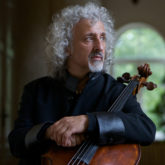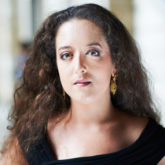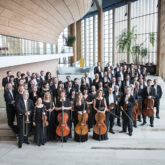
Budapest
Maisky
Kobayashi season ticket 2
The hunter’s funeral. The coffin is drawn by rabbits as a deer weeps into its handkerchief and a grim wild boar stares off into space. Gustav Mahler would have been familiar with this often-reproduced picture from his native land, now known as the Czech Republic. This is what inspired the movement of his Symphony No. 1 that starts with a melody known all over Europe, in English- and French-speaking lands as (“Frère Jacques”), and continues with tempos of the sort of lovable kitschiness that can be heard from klezmer bands today. This would be the fourth movement of his First Symphony. Or perhaps it is the third movement. This is because, at the work’s première, it consisted of five movements, although the composer later saw fit to omit the second. The famous world première took place in Budapest. From the autumn of 1888 until the spring of 1891, Mahler served as the head of the Hungarian Royal Opera and made use of the opportunity to present his new work to the audience. There was a bit of a fuss, with the distinguished public finding the work’s bizarre sound world difficult to digest, with one newspaper even publishing a malicious cartoon with an unflattering caption playing on his name, A Malér-szyfónia, (“The Mess-symphony”). But the performance itself went down without a hitch, and Mahler was satisfied with how the Hungarian musicians had played.
Preceding Mahler’s “Budapest” symphony will be a performance of Beethoven’s Triple Concerto, as a family undertaking. Mischa Maisky will play the cello part, with his son Sascha on violin and daughter Lily on piano – the latter part Beethoven originally intended for Archduke Rudolf, who was a respectable pianist. Nevertheless, Rudolf’s aristocratic fingers remained unburdened at the piece’s first public performance.






